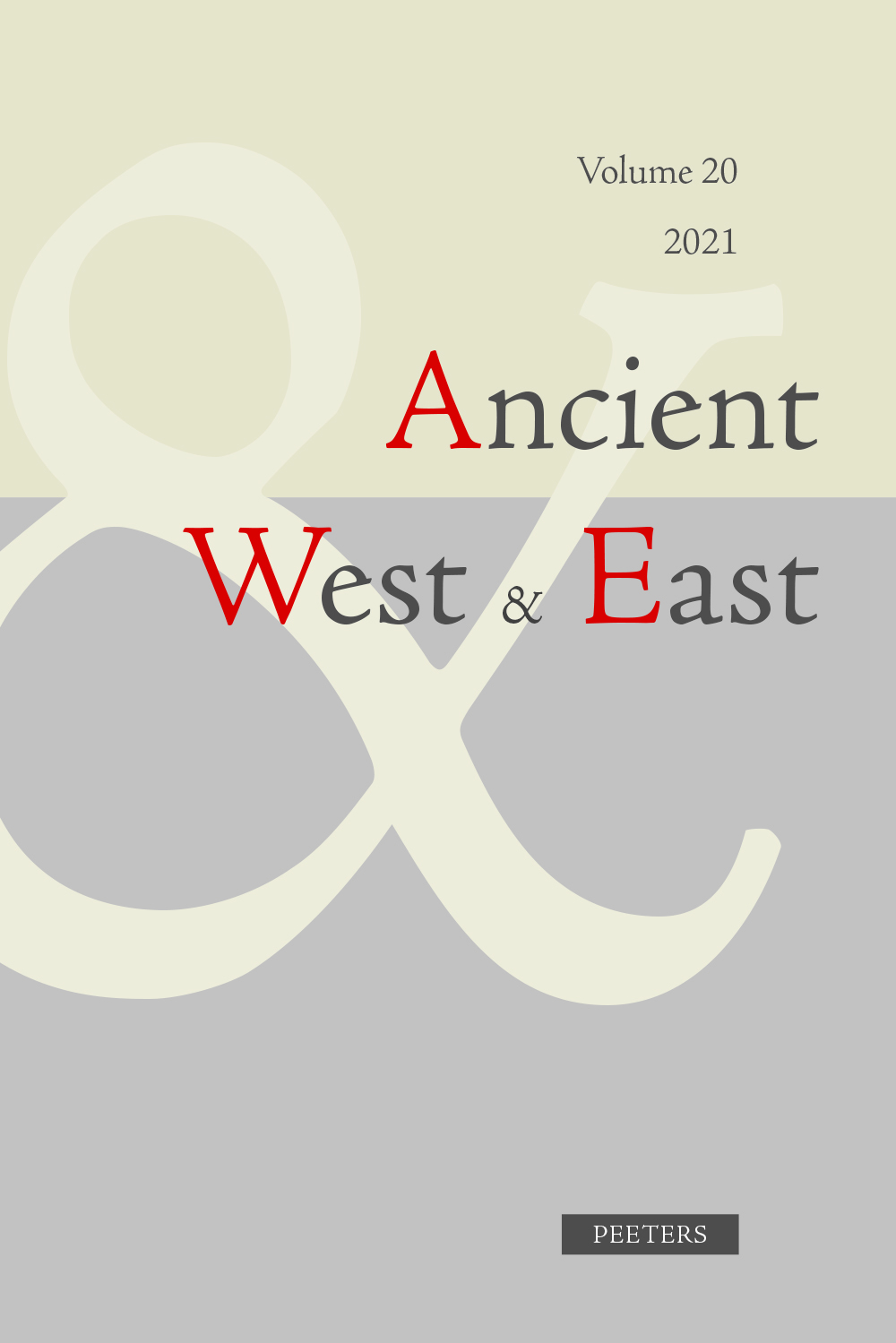 previous article in this issue previous article in this issue | next article in this issue  |

Preview first page |
Document Details : Title: Teleology and Colonisation in Antiquity and in Recent Times Author(s): NIJBOER, Albert J. Journal: Ancient West & East Volume: 10 Date: 2011 Pages: 281-307 DOI: 10.2143/AWE.10.0.2141825 Abstract : This contribution discusses the inherent problem with the word colonisation in recent academic discourse. It advocates the use and definition, preferably with archaeological parameters, of a whole range of other denominators for the rich record of crossing borders, inter-regional encounters, frontier situations and overseas settlements. Colonisation refers to the seemingly inevitable colony, and thus directs us to the possible end result of a process that is accompanied by countless variations and that occurred in many historical periods, for example in antiquity as well as in more recent times. Focusing on the colony as the outcome of the process goes hand in hand with an extreme case of teleological reasoning, of ‘evolutionary-ladder’ history. It tends to throw out an array of data that documents exchange and encounters of a different kind. It counteracts the historicity of the process. This will be illustrated with a discussion of early Greek imports and their local imitations in Iron Age Italy and of evidence for the rise of Kaapstad/Cape Town (South Africa) and the Dutch enclave at Deshima (Japan) during the 17th–19th centuries AD. One of the problems with colonisation from a Western perspective is that it tends to negate its multi-ethnic character, and thus wipes out other participating groups and the so-called peoples without history. This is a particular problem for archaeology which, as a discipline, studies exactly these peoples. In history the final establishment of a colony follows a long-term process and depends much on original social-economic conditions in the land of arrival. The first overseas settlers hoped to prosper but depended in the beginning on relations with local groups. Thus, it is far more interesting to compare the societies of the resident communities with those of the incoming settlers than just to concentrate on the culture that eventually gained the upper hand. For archaeology it requires an integration of pre- and proto-historical data about the original population with evidence documenting incoming groups. Unfortunately the regional and chronological specialisation of scholars, as well as ideology and politics, makes this a tough exercise. |
|


